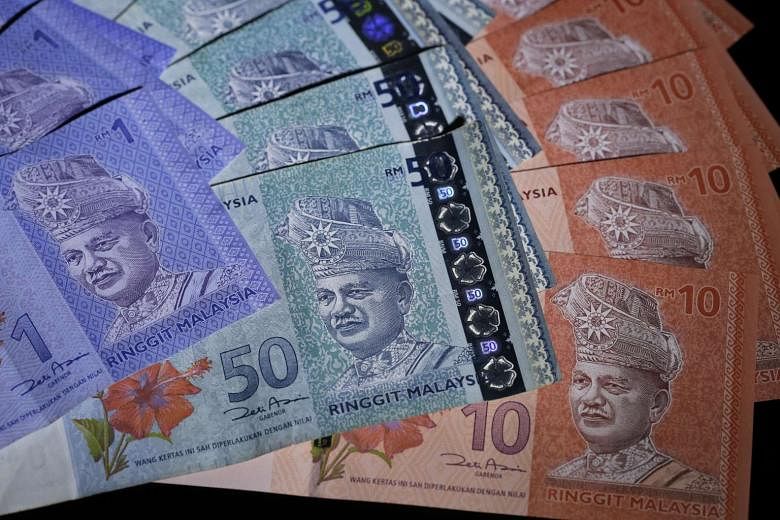SINGAPORE (REUTERS, BLOOMBERG) - The Malaysian ringgit and Indonesian rupiah slid to fresh 17-year lows on Tuesday (Sept 29), as persistent worries about the health of the Chinese and global economies weighed on risk sentiment and dented emerging Asian currencies.
The ringgit fell for a sixth day and was down 1 per cent at 4.4725 a US dollar as of 12:24 pm. It earlier dropped to 4.4845, the weakest level since at least January 1998, and has plunged about 16 per cent since June 30.
The Indonesian rupiah slipped to 14,730 at one point, its lowest level since July 1998.
Against the Singapore dollar, the ringgit breached the 3.12 level for the first time, trading at 3.1239 at 12:25 pm, down 0.8 per cent from Monday's close. It reached a morning low of 3.1260 at 11:44 am.
The Singdollar, meanwhile, touched a six-year low of $1.4335 per US dollar at 9:21 am and was trading at 1.4326 against the greenback at 12:43 pm.
The ringgit is headed for its biggest quarterly loss since 1997 as the relatively low level of import cover afforded by Malaysia's foreign-exchange reserves makes the currency more vulnerable to an emerging markets selloff.
The country's reserves have declined the most among Southeast Asia's five biggest economies in 2015 and Moody's Investors Service said in August that while they are sufficient, their adequacy is the weakest in the region.
The holdings recovered for a second straight fortnight in the first two weeks of September, suggesting the central bank scaled back its intervention. Malaysia's foreign-exchange reserves rose 0.6 per cent to US$95.3 billion in the two weeks to Sept 15 but are still 18 per cent lower than at the end of last year. They declined to a six-year low of US$94.5 billion in early August.
A slump in Brent crude is also weighing on earnings for the region's only major net oil exporter, just as a looming US interest-rate increase spurs outflows from emerging markets.
China's deepening economic slowdown, a political scandal involving Prime Minister Najib Razak and rising debt at state investment company 1Malaysia Development Bhd. have compounded the losses.


